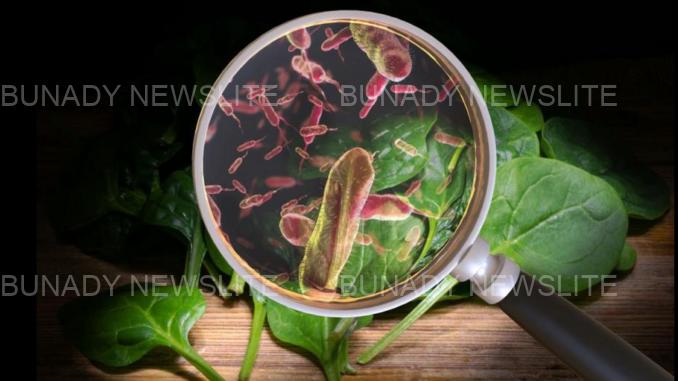When food poisoning strikes, home remedies and acupressure may help to ease the symptoms. Accidentally eating contaminated food or experiencing an allergic reaction can cause serious discomfort. While seeking medical attention is crucial, certain traditional Chinese medicine (TCM) remedies may help provide first aid and relieve symptoms.
Food poisoning cases frequently make headlines. In November of this year, a major E. coli outbreak linked to McDonald’s locations across the United States was suspected to have been caused by contaminated onions. The outbreak resulted in more than 100 infections,
with at least 34 hospitalizations and the death of one older adult. Another incident involved at least 48 people falling ill after eating E. coli-contaminated organic carrots, leading to 20 hospitalizations and one death.
The most common symptoms of E. coli infection include stomach cramps, diarrhea, vomiting, and, in rare cases, hemolytic uremic syndrome, a serious kidney condition.
Story continues below advertisement
Food safety risks often stem from:
Raw or undercooked meat or seafood contaminated with bacteria or parasites.
Leftovers that have been contaminated with bacteria.
Moldy food due to improper storage.
Experiencing allergic reactions triggered by seafood, nuts, or other allergens.
The severity of food poisoning symptoms depends on several factors, including age, overall health, the cause of poisoning, and the amount of toxins ingested. Those with weaker immune systems may experience more severe symptoms.
Symptoms typically appear within one to 36 hours after eating contaminated food, with vomiting and diarrhea being the most common. Other symptoms may include nausea, fever, headache, fatigue, and, in severe cases, bloody or pus-filled stools.
On the other hand, food allergies can cause skin redness and swelling, nasal congestion, asthma, and digestive discomfort. Some people may also experience dizziness, anxiety, or irritability. In severe cases, allergic reactions can lead to difficulty breathing, heart palpitations, shock, or even loss of consciousness.
First Aid for Food Poisoning
If you suspect that you or someone else has food poisoning, consider taking the following steps:
Preserve a Food Sample and Seek Medical Attention
If symptoms of food poisoning develop, seek medical help immediately. At the same time, keep any remaining uneaten food, seal it, and store it in a cool place—but do not freeze it—as it may be needed for testing. In most cases, hospitals will notify the relevant health authorities.
Use Vinegar to Regain Consciousness
If the person has lost consciousness, soak a gauze pad or cloth in vinegar and place it over their nose. The strong smell of vinegar may help them regain consciousness.
Induce Vomiting
If the contaminated food was eaten within the last few hours, the toxins may still be in the stomach. Inducing vomiting can help expel the harmful substances and reduce toxin absorption. This can be done by stimulating the back of the tongue with a finger, the handle of a spoon, or chopsticks. Alternatively, drinking salt water (dissolve about one tablespoon of salt in ¾ cup of warm water, then let it cool) or ginger juice may help trigger vomiting.
Be Cautious With Anti-Diarrheal Medication
Diarrhea is a common symptom of food poisoning and can help flush toxins from the body. Taking anti-diarrheal medication too soon can hinder the body’s natural detox process. It is generally best to avoid such medication unless diarrhea is excessive (more than 10 times in a day) and causing severe dehydration or weakness.
Get Plenty of Rest and Stay Hydrated
After food poisoning, rest and hydration are essential. Drink plenty of fluids and eat small, light meals to avoid overburdening the digestive system. If you have no appetite, try to eat small amounts of food while ensuring adequate fluid intake.

